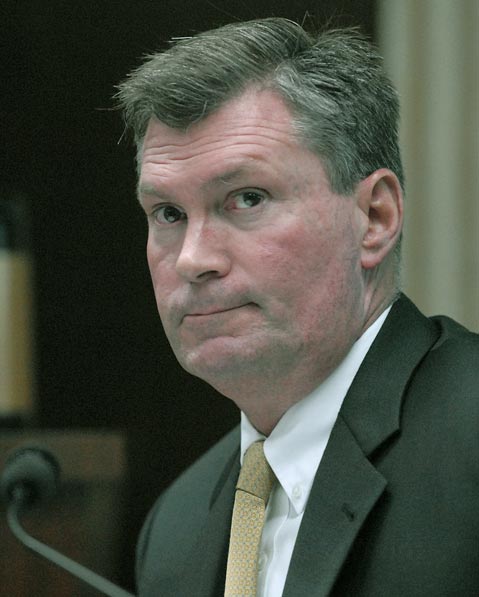Clear as Mud
Status of Pot Dispensaries Murkier than Ever
Last week’s appellate court ruling invalidating the City of Long Beach’s medical-marijuana dispensary permitting ordinance promises to cast a long shadow on the already murky legal debate about Santa Barbara’s pot dispensaries, and those throughout the entire state, for some time to come. The panel of appellate judges ruled Long Beach’s comprehensive — and expensive — permitting process for dispensary operators flew in the face of federal drug law, which regards such activity fundamentally unlawful.
It’s one thing, the justices ruled, to allow behavior that’s not legal under federal law but that’s effectively been “decriminalized” under state law. It’s quite another, they said, to pass an ordinance that affirmatively authorizes such behavior by charging a one-time processing cost — $15,000 — collecting annual fees — $10,000 a year — and organizing a lottery to determine which dispensaries are permitted. Santa Barbara City Attorney Steve Wiley termed the ruling “important,” but acknowledged he might have a hard time divining a bright legal line clarifying what permitting requirements would pass muster under the Long Beach ruling. The more actively a city regulates dispensaries, Wily said, it increases the risk of stepping over that line. But just how passive a city must be in drafting such regulations, he said, remains uncertain. “I’m not clear where that leaves cities in regulating dispensaries,” he said.

Lawyers representing those in the marijuana dispensary industry, like Joe Elford with Americans for Safe Access, expressed concern that local communities might overreact to the Long Beach ruling. “We worry local government might be tempted to throw their hands in the air and say there’s nothing we can do and just ban dispensaries,” he said. Elford acknowledged the ruling made the line “even more murky.” But he added, “Nowhere in the ruling does it say any and all efforts at regulation are preempted; it just says you have to be more specific about how you do it.” For example, the court frowned upon Long Beach’s requirement that all dispensaries send their wares off to be tested for chemical contamination. To require an applicant to commit an illegal act — distribution of an illegal substance — the judicial panel ruled, was like asking a burglar “to commit an additional act of burglary.” Cities, they said, just can’t require that.
Wiley and Elford agree the ruling is hardly the last word. “I’d bet my right arm this winds up at the [California] Supreme Court,” said Wiley. Should that happen, he estimates it would take at least 18 months for the matter to be resolved. Barring that, Elford said, he’d file a motion to have the opinion de-published, meaning it would no longer pack any weight as legal precedent.
The case was brought by a couple of dispensary operators who sued after their application failed to make it through the Long Beach lottery. Although they prevailed in their appeal, their future in the marijuana dispensary business remains unclear. As with much relating to medical marijuana law, there’s far more clarity about what’s not acceptable than what is. It’s well established, for example, that dispensaries have to be set up as collectives, co-ops, or not-for-profit operations. What’s not at all clear is how much money can change hands between buyer and seller without violating the very nebulous terms of this understanding.
According to Wiley, the Long Beach ruling did little to clarify under what conditions a storefront dispensary can operate within the guidelines of California law. But it did explicitly state, he said, that small collectives where all members tilled the soil were legal. To what extent the Long Beach ruling can be applied to the City of Santa Barbara, where a maximum of three dispensaries can be legally permitted, also remains to be seen. But Dr. David Bearman, a specialist in cannabinoid medicine, objected that it would be “absurd” to require cancer patients to cultivate the soil in some collective endeavor before allowing them the medical marijuana that helps blunt the harsher side effects of chemotherapy. “They’d likely be dead before any crop came up,” he said. “This is what happens when you have lawyers practicing medicine.”
The Long Beach ruling practically got lost in last week’s hubbub about a new round of cease and desist letters sent by the U.S. Attorney’s office to some of the largest dispensary operators throughout the state. Unlike the last time a wave of such letters went out — when George Bush was still in the White House — this time none were mailed to Santa Barbara operators. Many in the medical marijuana industry expressed outrage that President Obama and his attorney general William Holder seemed to have reversed their prior pledge not to expend Department of Justice resources prosecuting medical marijuana cases. City Attorney Steve Wiley said such critics misread Obama’s policy in the first place and suggested recent plans unveiled — in cities like Oakland — for large scale industrial factory cultivation of pot may have given the Obama administration second thoughts. Elford suggested the whole exercise could be nothing more than the legal equivalent of a head fake. “You can huff and you can puff, but that doesn’t mean you’re going to blow my house down,” he said.
For Josh Lynn, Santa Barbara ‘s former acting District Attorney now in private practice, the recent letters were “100 percent political.” He suggested that in lean economic times, medical marijuana dispensaries — often fat with cash — make a tempting target for law enforcement officials empowered with the ability to seize the assets of those suspected of engaging in illegal enterprises. Lynn, who represented the owner of one of the biggest dispensary operations to be prosecuted in Santa Barbara, lamented the utter lack of clarity when it comes to the actual law governing medical marijuana. “As a lawyer, it’s my job to advise clients what they can and can’t do under the law,” he said. “But right now, I wouldn’t know how to advise someone how to do things legally. And I’m an attorney.”



